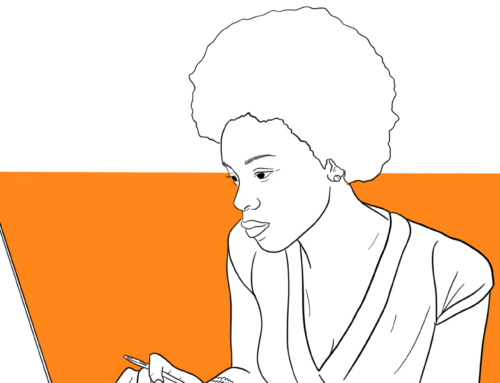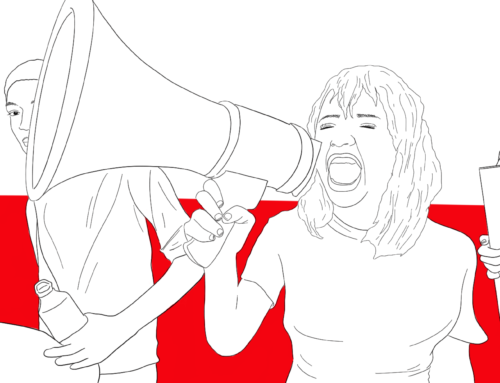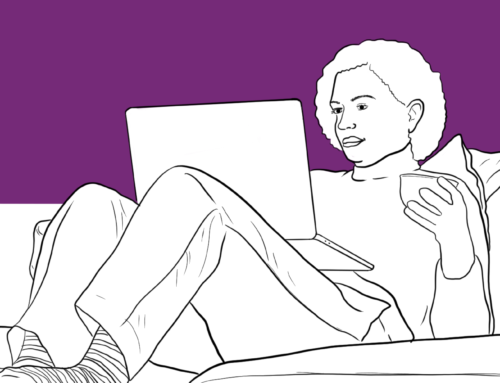Over the past year in Uganda, there have been a number of conversations about the growing youth demographic and its implications for the country. Uganda is one of the youngest countries in the world and the Uganda Bureau of Statistics estimates that 56.1 percent of Ugandans are under 18 years. We hear about how Uganda needs to tap into this great resource but we also hear that young people lack jobs- youth unemployment is at 32 percent, young people have no access to capital to start businesses- 21 percent of Ugandan businesses fold within a year and only 2 percent of businesses expect to employ more than 20 people in the next five years. We can see that youth are marginalized economically- from the number of young people working in the informal economy and we hear that youth are also marginalized politically. Political party youth leagues are underfunded and sidelined in decision-making. During the 2016 general elections, a number of youth were locked out of the electoral race by an unexpected increase in nomination fees from Ugx 200,000 to 3,000,000 shillings. When one steps away from this conversation and looks at who makes decisions that affect the large number of young Ugandans, it is a sweep of old men in suits, conservative old women, bush war heroes and middle class evangelists.
There is also a new statistic in town: According to the Uganda Youth Parliamentary Forum, approximately 60 percent of the Members of Parliament in Uganda’s new parliament are under 35. There is both a man and woman Member of Parliament for youth at the national level and a youth Member of Parliament from each district. Uganda has a National Youth Council with representatives from the village to national level. This council in theory, works with government to make sure issues affecting youth are included in policy and resource allocation decisions. All of these groups in essence, speak for the significant number of young Ugandans. An oft-quoted sentiment during the 2016 elections was, “if young people decided, they alone could choose the next president of Uganda.” So why do these large numbers, these multiple avenues of representation at the national and sub-national level not translate into better outcomes and political power for young Ugandans? Why do young Ugandans with access to mobile phones, radio and the internet indeed not band together and demand that their voices be heard?
Same, same but different.
First, is the distinction between young people themselves; despite many discussions that lump young Ugandans into one homogenous group, there are many different types of young Ugandans with different sets of needs and issues. A 20 year old Ugandan woman in Kotido has vastly different issues from a 20 year old in Kampala-the former is likely married with children and supporting an extended family on one acre, while the latter is dealing with yet another strike at Makerere University. A 22 year old Ugandan man in Buikwe is looking for capital to buy a boda boda while his peer in Hoima works in a tea plantation and spends his heard earned money in a dodgy betting hall. Across the country are divisions in opportunity, access and information among, rural, urban, peri-urban, rich, poor and educated. To say that there is a single issue on which all Ugandan youth agree and then mobilize their voice, energy and fire around that issue is a fallacy. One that is perpetuated by the many youth conferences, round tables and symposiums held in mainly urban areas by every other entity looking to check off the ‘inclusive’ box on their activity plan.
Who speaks for young people, and which ones?
In light of the fact that there are many kinds of youth, Uganda has failed to decide who speaks for young people. The Minister of Youth led the charge for the re-election of President Museveni in 2015, going on her knees begging the President to stand uncontested within his party and claimed she had been “sent by the youth of Uganda.” Which youth did she consult? Which youth were able to hold her accountable for these actions? When Youth Minister Ronald Kibuule assaults and insults women in public, which youth constituency holds him accountable and indeed sanctions his behavior. Despite large numbers, young Ugandans have no leverage in the core centers of power because they have been reduced to a talking point for these representatives. Similarly, their representatives know where true power lies, not with the young people across the country but with the power brokers, patrons and gatekeepers surrounding the presidency.
Kisanja hakuna mchezo!
So, how do young Ugandans begin to engage with power and leverage their numbers in ways that amplify voice and get their issues on the table? How do we get those in power to listen and act for us? By realizing that size does matter and tapping into the multiple avenues that exist now; young politicians should use groups like the Inter Party Youth Platform which currently has 8 political party youth leagues working together. These young people should start to build links, across parties, class and location, encouraging youth to see that they are more similar than different. That the medical interns striking against a lack of stipends in Kampala are dealing with the same problem as the young mother in Amur who cannot access or use the Level 3 hospital because even if she can get to it, there are no drugs. Political parties can give voice to the young man betting his hard-earned bodaboda fares in Kamuli and show him that his struggle is similar to that of the young man selling chewing gum at the Jinja road traffic lights in Kampala. Young politicians need to become storytellers, building real solidarity and a force for change across the country and across our different issues.
Urban youth that are connected and have access to media can become the amplifier for youth issues from the sub-national level. Social media savvy youth have access to research from across the globe that youth politicians and parliamentarians need to argue for more allocation of funds and services to youth issues. Young people in civil society have access to allies in the donor space. These allies can apply pressure to those in power, by encouraging them to create platforms that really work for young people; instead of more round tables and token representation, urge government to create committees where young people sit with planners and decisions makers and offer solutions that consider youth.
Far from being marginal in number, Ugandan youth have proven to be marginal in thinking. We have believed the lie that we are marginalized and underrepresented, when in truth, we are merely isolated from each other. We might not agree on a single issue that affects all youth but we can agree that we need a process that allows all young people to feel heard and take action on the issues that affect them. I would like to be part of a new conversation about young Ugandans, one in which we are building links with each other across geography and class. One in which our sheer numbers make those in power sit up and take us seriously.
Written by Suzane Muhureza





Leave A Comment